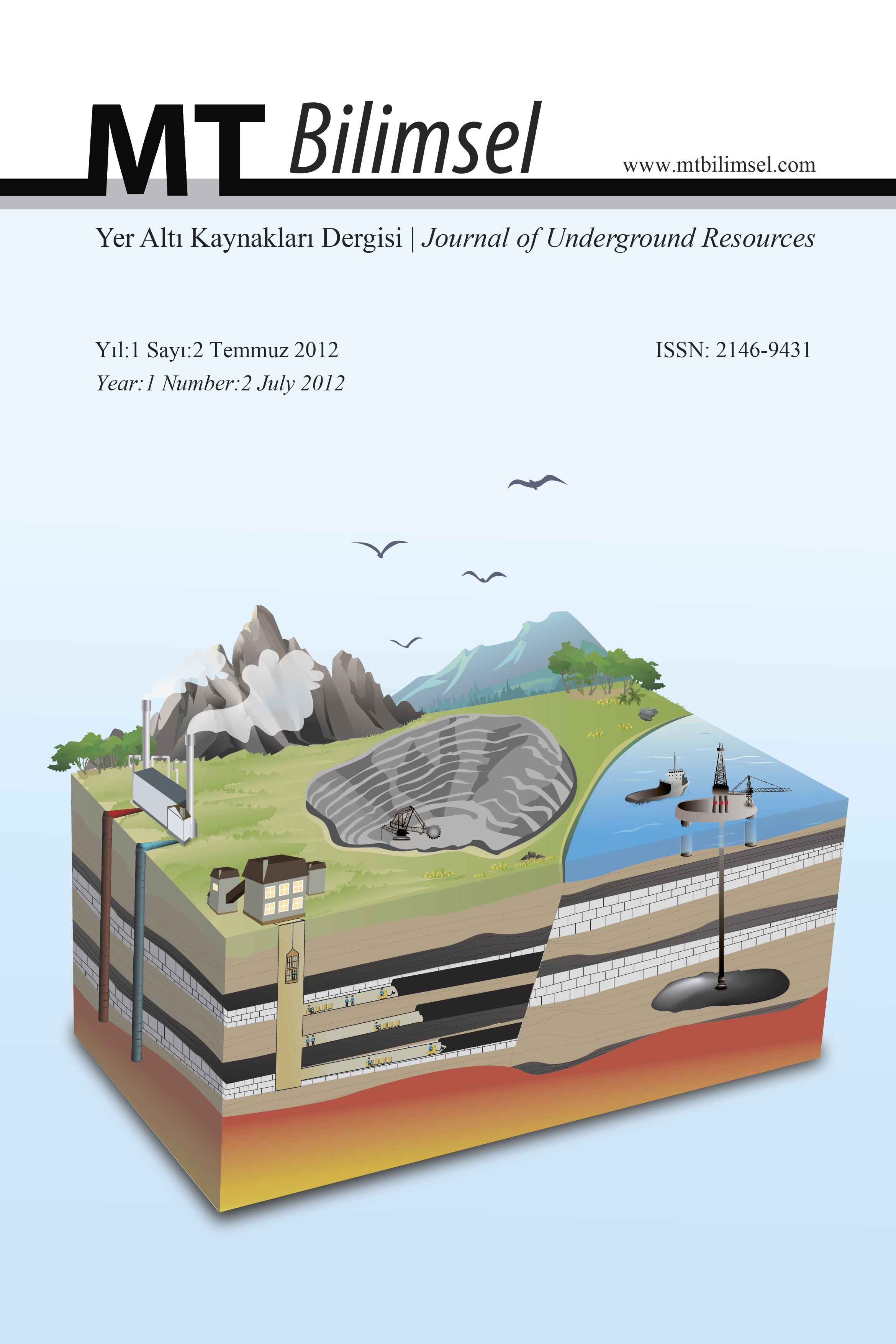Effect of Mechanical Activation on Roasting of Celestite Ore
Effect of Mechanical Activation on Roasting of Celestite Ore
Celestite, Mechanical Activation, Roasting,
- ISSN: 2146-9431
- Yayın Aralığı: Yılda 2 Sayı
- Başlangıç: 2012
- Yayıncı: Mayeb Basın Yayın İnsan Kaynakları Ltd. Şti.
M Deniz TURAN, Z Abidin SARI, Hasan NİZAMOĞLU, Yunus ELMAS
Investigation of Top Coal Cavability and Roof Behavior by Ground Response Curves
Engineering Geological Assessment and Preliminary Support Design for Cankurtaran Tunnel, NE Turkey
Effect of Mechanical Activation on Roasting of Celestite Ore
Raşit SEZER, İbrahim Göksel HIZLI, Ayşegül BİLEN, Selim ERTÜRK, Cüneyt ARSLAN
Reliability Analysis of Loader Equipment: A Case Study of a Galcheshmeh Travertine Quarry in Iran
Mehdi TAHERI, Abbas Aghajani BAZZAZI
Modelling of Underground Natural Gas Storage Openings in the Basin of Tuz Gölü Lake with FEM
